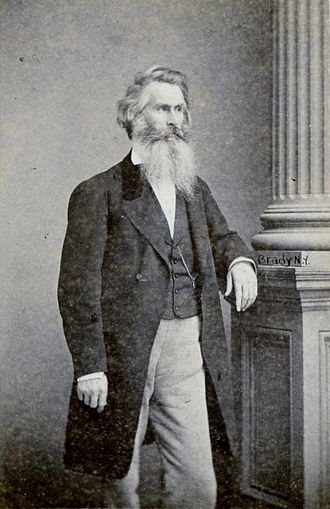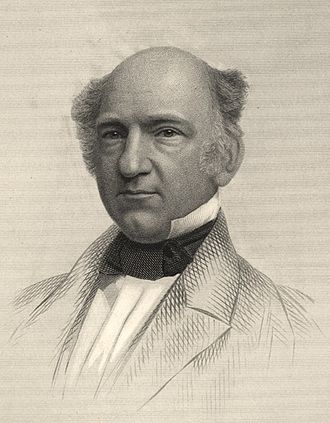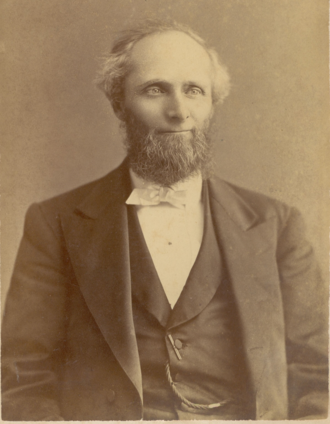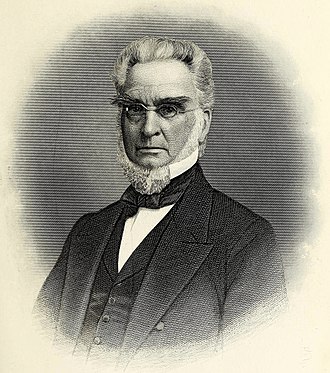Discover Your Roots
SIGN UPDiscover Your Roots
SIGN UPErastus is a Greek-originated male name that carries the beautiful meaning of "Loved." This name has been historically associated with notable biblical figures and influential individuals across various fields. From Erastus of Corinth in the New Testament of the Bible to modern-day politicians, businessmen, abolitionists, and artists, the name Erastus has been carried by individuals who have made significant contributions to society. Its timeless and endearing meaning reflects the potential for warmth, affection, and positive impact that individuals bearing this name may bring to the world. With its rich historical and biblical ties, Erastus is a name that exudes a sense of love, strength, and influence.

Erastus Dow Palmer (1817–1904) was a renowned American sculptor known for his neoclassical style. Born in Pompey, New York, he showed early artistic promise and transitioned from carpentry to sculpture. His rise to prominence came with an exhibition of his sculptures, "the Palmer Marbles," at the National Academy of Design in 1856. Palmer's notable works include "The White Captive," "Peace in Bondage," "Angel at the Sepulchre," and a bronze statue of Chancellor Robert R. Livingston. He passed away in Albany in 1904 and is buried in the Albany Rural Cemetery. Palmer's admiration for artists like William Cullen Bryant, Asher B. Durand, and Frederic Edwin Church influenced his work. His son, Walter Launt Palmer, was also a renowned artist. The Albany Institute of History & Art and Olana, Church's home, hold significant collections of Palmer's work. Palmer's legacy continues to inspire and influence the world of sculpture.

Erastus Root (March 16, 1773 – December 24, 1846) was an influential American lawyer and politician from New York. Known for his extensive political career, he served four non-consecutive terms in the U.S. House of Representatives during the early 19th century. Root's journey began in Hebron, Connecticut, and led him to Dartmouth College, where he graduated in 1793 before pursuing a career in law. His political endeavors included multiple tenures in the New York State Assembly, the New York State Senate, and the U.S. House of Representatives, where he made significant contributions as Chairman of various committees. Beyond politics, Root also served as a Major-General in the New York State Militia. His personal life centered around his marriage to Elizabeth Stockton and their five children. Root's legacy lives on in the Town of Root in Montgomery County, New York, named in his honor. His contributions to American politics and law remain a significant part of New York's history and the nation's political landscape.

Erastus Brigham Bigelow (April 2, 1814 – December 6, 1879) was an American inventor known for his pioneering work in weaving machines. Born in West Boylston, Massachusetts, Bigelow demonstrated his inventive talent at a young age, creating a machine for manufacturing piping cord at 14. His notable contributions include the invention of power looms for weaving various types of carpets, such as ingrain, Brussels, and velvet tapestry carpets. His innovative achievements significantly impacted the town of Clinton, Massachusetts, leading to its growth and manufacturing prominence.Beyond his inventions, Bigelow played a significant role in the establishment of educational and cultural institutions. He founded the Bigelow Mechanics Institute, now known as the Bigelow Free Public Library, and was an original incorporator of the Massachusetts Institute of Technology. Additionally, he made contributions to the field of stenography and proposed a scheme of uniform taxation for the United States.Bigelow's legacy extends to his descendants, with his daughter Helen Bigelow Merriman becoming an artist and art collector, and his grandson Roger Merriman achieving renown as a historian. His impact on the weaving industry and his involvement in the cultural and educational development of Massachusetts solidified his place in American history.References:This article incorporates text from a publication now in the public domain: Wood, James, ed. (1907). "Bigelow, Erastus Brigham". The Nuttall Encyclopædia. London and New York

Erastus Otis Haven (November 1, 1820 – August 2, 1881) was an influential American academic administrator and bishop of the Methodist Episcopal Church. He served as the 2nd president of the University of Michigan, the 3rd president of Northwestern University, and the 2nd chancellor of Syracuse University. Haven was born in Boston, Massachusetts, and was a descendant of early colonists from the Massachusetts Bay Colony. He graduated from Wesleyan University and pursued a career in academia, theology, and politics. Throughout his career, Haven held various administrative appointments and was known for his versatility of talent, religious convictions, and positive influence. He received honorary degrees and authored several notable works. Haven passed away in Salem, Oregon, and was buried at Lee Mission Cemetery. His legacy is honored through a street in Evanston, Illinois, and an endowed chair at Northwestern University. Erastus Otis Haven's impact on academia and the Methodist Episcopal Church remains significant to this day.

Erastus Fairbanks (October 28, 1792 – November 20, 1864) was a prominent American manufacturer, Whig politician, and a significant figure in the founding of the Republican Party. He served as the 21st and 26th governor of Vermont, leaving a lasting impact on the state's industrial and political landscape. Fairbanks co-founded what later became the renowned Fairbanks Scales company, a key player in the industrialization of Vermont.Born in Brimfield, Massachusetts, Fairbanks initially pursued law but later transitioned to business, establishing a successful partnership with his brother in the manufacturing of scales, stoves, and plows. His entrepreneurial spirit and innovative approach led to the invention of the first platform scale, revolutionizing the measurement of goods transported by wagon and railroad.In addition to his business ventures, Fairbanks was actively involved in civic and charitable initiatives, including the founding of St. Johnsbury Academy. He was a dedicated public servant, serving as a member of the Vermont House of Representatives and as a delegate to the first Republican National Convention.Fairbanks' impact extended beyond business and politics, as he played a crucial role in the early days of the American Civil War, providing valuable aid in the equipment and dispatch of troops. His legacy lives on through his contributions to Vermont's industrial development and his pivotal role in shaping the state's political landscape.
All images displayed on this page are sourced from Wikipedia or Wikimedia Commons.We use these images under their respective Creative Commons or public domain licenses. Wherever applicable, author attributions and license information are provided. If you believe an image is used incorrectly or outside its license terms, please contact us so that we can review and correct the issue.